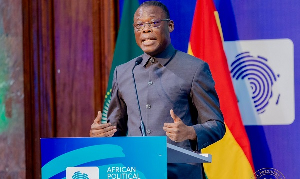Following the return to relative stability of the cedi against the United States dollar and other major international trading currencies, the sharp surge in foreign exchange deposits in Ghana has abated somewhat.
The significant depreciation of the cedi, which began during the second quarter of 2018 and which spiked during the first ten months of this year instigated a surge in foreign currency deposits, and to a lesser extent, demand deposits (current accounts).
Resultantly, both types of deposit recorded substantial annual growth at the end of February 2019, at the same period when the Cedi was at under pressure from other major trading currencies; indeed, this trend contributed to the cedi’s depreciation with moving from cedi to forex accounts.
Data from Bank of Ghana’s summary of economic and financial data for March 2019 shows that, the annual growth in foreign currency deposit grew to 25.2 percent over the one year up to February 2019 against the contraction of -2.0 percent recorded over the 12 months up top February 2018.
However, in contrast, the annual growth for savings and time deposits, which are interest-bearing bank fixed deposit accounts that have a specified date of maturity, contracted to 15.4 percent over the 12 months up to February 2019 compared with 26.1 percent recorded over the previous one-year period.
However, with a rebound in confidence, resulting in some stability of the Cedi against other major trading currencies, the surge is dissipating and it now looks unlikely that the strong growth in the foreign exchange deposits which has occurred over the past months would continue in the near future.
Indeed, several foreign exchange treasury officers of banks – all speaking on condition of anonymity – confirmed to Goldstreet Business that the rate of growth in foreign currency accounts has slowed sharply recently. However, the fact that there is still growth in these accounts at all suggests that depositors are not yet entirely convinced that the cedi is out of the woods.
Growth in foreign currency deposits, measured on an annualized, year on year basis, began to record a consistent rise from May 2018 at 6.2 percent to 20.9 percent in September 2018 before closing the year at 14.3 percent but then accelerating further to 21.2 percent and 25.2 percent in January and February 2019 respectively.
During the same period, the growth in currencies held outside the banking system had almost doubled to 14.1 percent in February 2019 compared with 8.2 percent in same period of 2018.
Similarly, the annualized growth in demand deposits almost tripled recording 32.9 percent growth over the 12 months up to February 2019, compared with 11.9 percent growth in the same period of 2018. The strong growth in both money outside the banking system and in demand deposits was in response of the desire by depositors for flexibility during the period of financial uncertainty brought about by the cedi’s sharp depreciation.
The data generally shows a trend of increase in deposit across both broad money (M2) and narrow money (M1) for the first two month of 2019.
The Head of Banking Supervision at the Central Bank (BoG), Osei Gyasi attested that there is an ongoing increase in deposits at the various banks operating in the country.
In the light of the rebound in confidence in the economy, as assessed by cedi exchange rate movements, industry watchers believe that there is going to be a shift from the foreign currency deposits back towards savings and time deposits especially with domestic interest rates having risen considerably over the past year. Most importantly however, the managers of the economy are expressing confidence that the cedi will be more stable going forward, implying that they will take steps to curb any renewed pressure on the exchange rate.
Business News of Wednesday, 10 April 2019
Source: goldstreetbusiness.com













